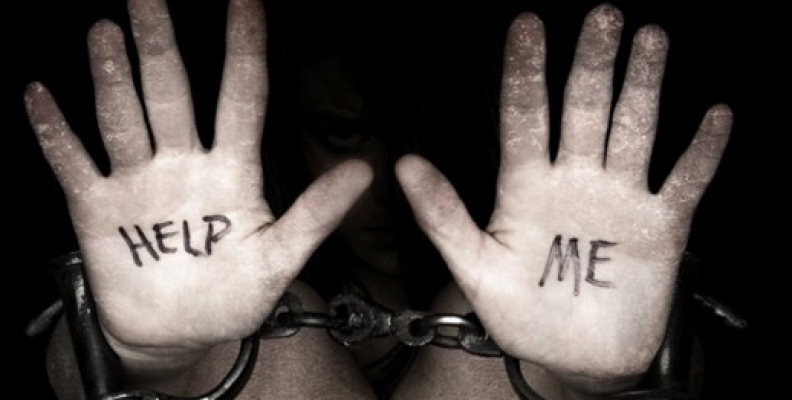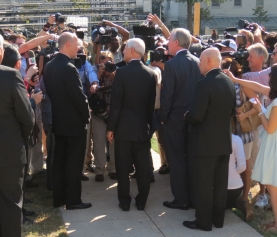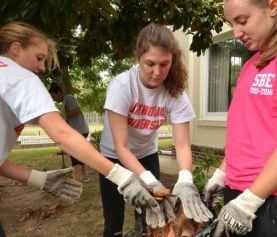
John Garvey: Conference Responds to Pope’s Challenge to Combat Human Trafficking
As we prepare for Pope Francis’s visit, the Catholic University community is taking up some of the topics and challenges Pope Francis has highlighted during his papacy. This week our National Catholic School of Social Service is co-sponsoring a conference on the American Catholic response to Modern-Day Slavery. The conference was a response to the Pope’s challenge to the Church, and all men and women of good will, to fight against human trafficking.
Human trafficking, Pope Francis said in his message for the World Day of Peace this year, is “an open wound upon the body of Christ.” It’s hard to disagree. The sinfulness of suppressing another’s freedom and dignity seems obvious.
And yet, according to one recent estimate by the International Labor Organization, forced labor in the private economy generates $150.2 billion per year in profits. The fact is that human beings, made in the image and likeness of God, are reduced to objects because there is significant demand for it. This brings the scourge of modern-day slavery closer to us than we would have thought — or would like to admit.
Modern- day slavery is not, by and large, the chattel slavery of 19th century America. It is women and children forced into a booming commercial sex and pornography industry. It is migrant workers who are deprived of a living wage (or any wage) and endure inhuman condition working in fields, mines, and factories (or building soccer stadiums). It is women in desperate situations who act as surrogates for fertility tourists in order to feed their own families.
This is slavery that can be easy to ignore. As the Holy Father observed, “when considering the reality of human trafficking, illegal trafficking of migrants, and other acknowledged or unacknowledged forms of slavery, one has the impression that they occur within a context of general indifference.” To put it another way, modern slavery occurs within a context of general self-interest. Victims of modern slavery are crowded out of our consideration by other concerns like pleasure or profit or a better price.
Even our concern for victims of human trafficking can become part of this general indifference. It takes little effort to tweet #bringbackourgirls. It is harder to change buying and consumption habits that might support the exploitation of others.
To combat this general indifference, Pope Francis says, we must practice acts of fraternity. This can mean supporting an anti-trafficking organization. It can also mean not purchasing items produced through exploitation. Combatting human trafficking requires more than restoring enslaved persons’ freedom. It requires restoring our own understanding that enslaved persons are our brothers and sisters because they are children of the same heavenly Father.
– John Garvey is president of The Catholic University of America.








